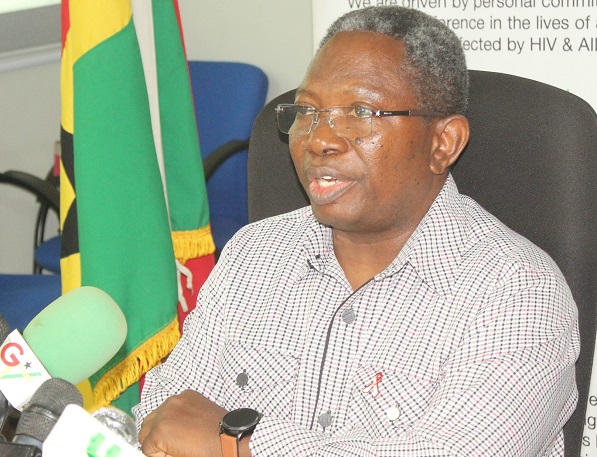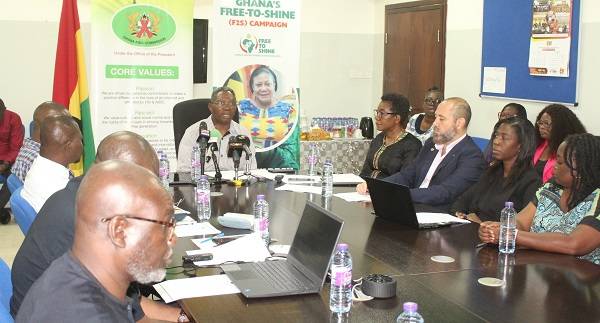
A total 354,927 people are living with HIV in the country, the Director General of Ghana AIDS Commission (GAC), Dr Kyereme Atuahene, has disclosed.
Out of the figure, he said, 239,692 are females and 115,235 males.

Dr Atuahene, speaking at the 2022 National and Sub-National HIV Estimates and Projections
yesterday, added that for regional HIV Estimates, Greater Accra topped the chart with 85,403, followed by Ashanti Region, 72,429 and Eastern Region with 46,339.
He said AIDS-related deaths were 9,359, with males being 4,353 and 5,006 females.
Dr Atuahene said the country recorded 16,574 new HIV infections with males being 5,647 and females, 10,927.
He said their age group of 0 to 14 years were 2,868 and adults from 15+ were 13,706.
He said the HIV epidemic remained a challenge, with certain regions and vulnerable populations disproportionately affected, adding “It is essential that we confront these disparities head-on and ensure that our response inclusive and reaches those most in need.”
Dr Atuahene said HIV estimates and projections data was generated using an improved version of the software which had the capability to estimate progress made on the ‘95-95-95’ targets and provide the granular strategic information required to improve geographic planning, and target setting for the development of the national HIV strategic plans.
The ‘95-95-95’ seeks to diagnose 95 per cent of all HIV-positive individuals, provide antiretroviral therapy (ART) for 95 per cent of those diagnosed and achieve viral suppression for 95 per cent of those treated by 2030.
Dr Atuahene expressed worry about females being vulnerable to the disease and advised women to protect themselves against the disease.
“I would like to stress that the numbers clearly show the vulnerability of women and for that reason women must take the necessary prevention actions that would ensure that they do not have HIV,” he added.
He advised men to support women in protecting themselves in ensuring that each sex outside marriage or unstable or stable relationship must be protected with condom.
The UNAIDS Country Director, Ghana said his outfit would continue to provide technical support to countries to produce the estimated number of new infections, people living with HIV and AIDS-related deaths among other variables.
For him these estimates were the result of a collaborative process with engagement of the national authorities, partners and other stakeholders in the country to provide a scientifically appropriate way to describe HIV epidemic levels and trends in the countries (including sub-national level), the different regions and at global level.
HIV estimates, he said served as the foundation of the development of national HIV policies, plans, strategies, and programmes which unite diverse stakeholders around a set of agreed goals, targets and strategic directions.
BY AGNES OPOKU SARPONG







